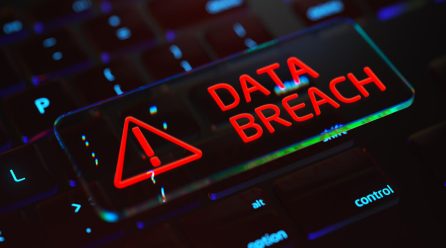Sustainable, long-term value creation must be a top priority for businesses when establishing a robust strategy. Take the all-important ESG (Environmental, Social, and Governance) strategy for example: interest in how the private sector satisfies ESG concerns has grown exponentially as customers, investors, and regulators demand more transparency on how businesses impact society and the environment. When it comes to ESG, the potential for value creation extends beyond the balance sheet. It can facilitate top-line growth opportunities, cost reductions, reduced regulatory and legal interventions, employee productivity uplift, investment and asset optimisation, uncovering a potential goldmine of savings and efficiencies.
All businesses are inextricably intertwined with ESG related issues, bringing a strong ESG proposition that creates value through holistic transformation into sharp focus for decision-makers. To achieve a strong ESG stance, each of the three elements – which are themselves intertwined and cover a wide spectrum of issues – must be considered. Unfortunately, this balanced approach – and subsequent value creation – is often scuppered by an imbalance in our understanding of how to address the ’Social’ factors, which often get overlooked.
To underscore the importance of establishing a robust ESG strategy that delivers long-term value for all stakeholders, we have created a series of blogs that explores each of the three elements. In this second instalment, we focus on the importance of satisfying the ’Social’ element – something businesses must not lose sight of amid a seismic shift towards addressing well-documented environmental factors.
S is for Social
The social element of ESG suffers from middle-child syndrome: it typically gets less attention than its siblings and feels caught in the middle. This apathy towards social responsibility from organisations stems from its contextual and shifting nature, making it difficult to define and measure.
According to the United Nations Principles for Responsible Investment report: “The social element of ESG issues can be the most difficult for investors to assess. Unlike environmental and governance issues, which are more easily defined, have an established track record of market data, and are often accompanied by robust regulation, social issues are less tangible, with less mature data to show how they can impact a company’s performance.”
Businesses that fail to recognise the value of a social responsibility programme do so at their own risk against a backdrop of mounting indignation towards social injustice – which society increasingly refuses to turn a blind eye to. This component of ESG evaluates the relationships your business fosters with all stakeholders. From employees and suppliers to customers and regulators, you must consider the impact of your operating model on people.
To demonstrate best practice in this regard, you should implement policies and processes that address high-profile societal issues and track their success:
- Ethical operations – Ethical operations from the top-down form the bedrock of a culture that engenders investors trust, enhances performance and benefits local communities. This extends beyond complying with laws and regulations; as an ethical business, you must be committed to doing the right thing at all times, including: diversity and inclusion, labour standards, ethical management, employee benefits and financial fair play.
- Diversity and inclusion – Gender, age and race diversity enhance corporate governance, attract talent, workforce development and long-term competitiveness. Corporate policies promoting diversity reflect a well-managed business that understands diversity’s value in stimulating creativity, increasing productivity and ensuring employee well-being.
- Health and safety – An excellent health and safety record demonstrates employee welfare, operational excellence, robust risk management and strong finances – indicating that your business will generate long-term value.
- Ethical supply chain – As a cross-border business, you must pledge to work only with suppliers that adhere to social standards, such as human rights. The aim is to create a cascade of sustainable practices that flows smoothly throughout the supply chain.
- Contributing to the local community – As an ethical business, you should engage in activities that contribute to the communities in which you operate, such as supporting local charities, employing and developing local talent and sourcing from the local supply chain. These positive messages will enhance your reputation and attract local custom.
Businesses that fail to meet these social responsibilities can be hit with severe financial penalties, which are compounded by the blow dealt to their reputation. For example:
- Amazon – In 2017, Amazon was ordered to repay €250m in illegal state aid to Luxembourg, as EU authorities clamped down on sweetheart deals that help the biggest corporations slash their tax bills.
- Chipotle Mexican Grill – In 2020, Chipotle was fined nearly $1.4 million over accusations that it routinely violated Massachusetts child labour laws by letting teenagers work too many hours per week and too late on school nights – with authorities estimating more than 13,000 violations from 2015 to 2019.
- Sports Direct – – In 2017, Unite, the union, accused UK sports retailer Sports Direct of breaking promises to offer store staff guaranteed hours rather than zero-hours contracts.
This is a wake-up call for businesses, who must not only recognise the potential implications of social neglect; they must understand the value of taking their social responsibilities seriously and visualise the positive outcomes such as:
- Attract and retain high-quality staff due to ethical stance and employee benefits
- Attract customers with favourable messaging regarding ethical operations
- Attract investors that seek sustainable, risk-free operating models that promote a positive brand message
- Establish an ethically reliable supply chain that values human rights and environmental sustainability to attract socially responsible custom and stay out of the headlines
GRC software
The key to a strong ESG strategy is the ability to collect the right data, so you can demonstrate to auditors, investors, and regulators that your business is actively addressing these issues and tracking progress. Traditionally, businesses have hit a speed bump when attempting to track, monitor and report on the social element – but the emergence of governance, risk and compliance (GRC) software that offers enhanced ESG capabilities has accelerated their response.
By choosing an integrated ESG solution from Camms that aligns with your existing risk & compliance processes, you will have the power to automate your response to your social responsibilities, including:
- Third-party/vendor risk management, including vendor analysis and vendor risk assessments
- Robust health and safety risk management
- A best-practice incident reporting tool for ESG related incidents
- Policy management to help you keep track of key social policies including diversity and inclusion and anti-bribery
- Compliance monitoring against ethical and moral standards
- A risk management programme that considers the impact of social injustice
- Centralised ESG data aggregation using API’s to collect data from disparate systems
- ESG data tracking aligned to your strategic goals
- Optimise ESG performance, identify risks, process efficiencies and produce an audit trail for regulators
Camms comprehensive GRC software supports the full ESG spectrum, enabling you to address your social responsibilities in parallel with environmental and governance factors. This ability to track, monitor and report from a central point of oversight provides your business with a holistic view of ESG – setting you on the path to a more ethical and sustainable model that satisfies regulators and attracts investors and customers.
Read the other ESG Blogs in this Series
Part 1 – Putting the E into ESG with ISO 14001
Adopting ISO 14001 demonstrates your commitment to ESG & will guide you towards a sustainable operating model. Read more in our blog.
Part 3 – Governance is the Backbone of an ESG Program
Governance is essentially the rules, policies and procedures that a business operates by, and without rules, you have chaos! Find out why governance is an important part of ESG in our blog.





